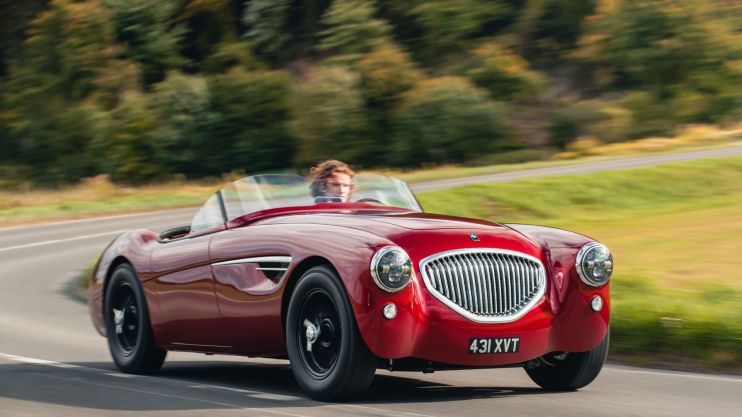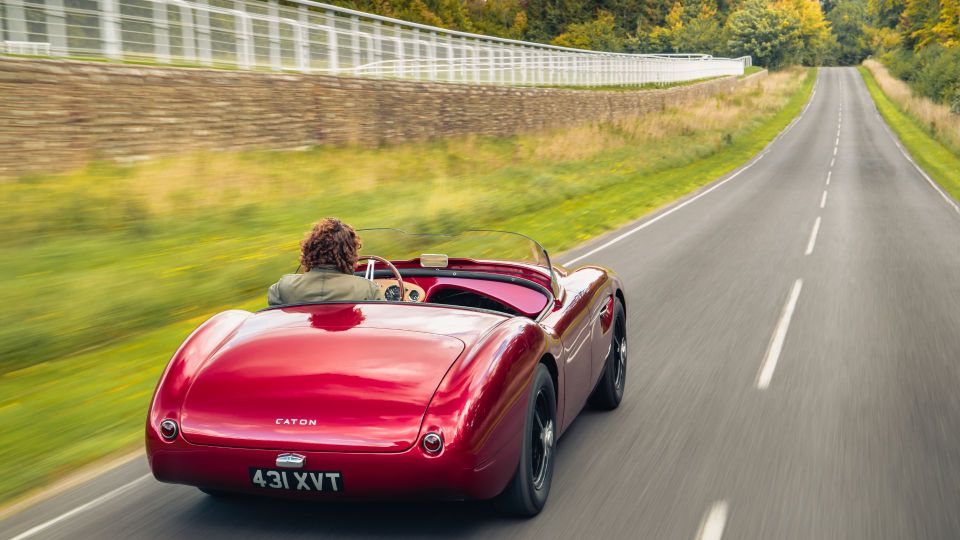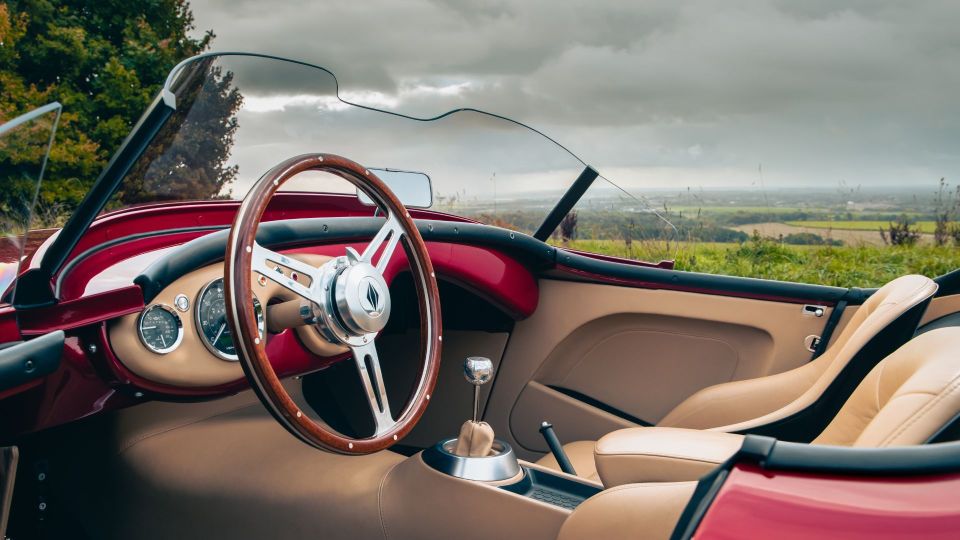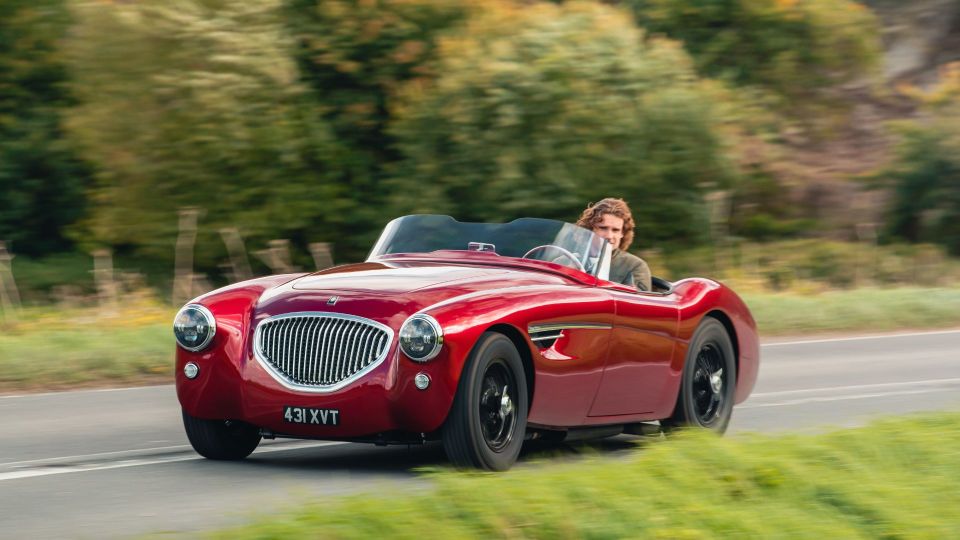Healey by Caton review: Blast from the past

When the ‘Healey Hundred’ made its debut in 1952, Britain was still recovering from the Second World War. Tea and sugar were rationed, and the streets around the Earls Court Motor Show were pockmarked with bombsites. The birth of rock and roll – marked by Elvis Presley singing That’s All Right – was still two years away.
The Austin-Healey 100, as it became known, was a tonic for these tough times, a splash of colour in a black-and-white world. It was also part of a golden age for British sports cars that included the Jaguar XK120, Lotus 7, MGA, Triumph TR2 and AC Ace.
Today, the simple charms of a rear-wheel-drive roadster seem as relevant as ever, which is where the Healey by Caton comes in. Billed as ‘a reincarnation, not a restomod’ it updates the Austin-Healey 100 BN1 with more power, a sharper chassis and bespoke bodywork – ‘the design Donald Healey would have penned if he had today’s precision engineering technology at his fingertips’.
A new luxury brand

Never heard of Caton? The company is a new venture from Coventry-based Envisage Group, which specialises in building one-off concept cars. It also makes body panels for Jaguar’s Classic Continuation models, such as the XKSS and new C-Type. In time, the hope is for Caton to develop into a fully-fledged luxury brand, producing furniture, jewellery, upmarket watches and more.
The Healey is a significant first step, then, and it shows off Caton’s coachbuilding skills to great effect. After 3D-scanning an original car, it has reduced panel gaps to modern (0.2mm) tolerances, removed the body seams and boot handle, and hidden away the door hinges.
A reshaped front grille is now flanked by LED headlights, while a low, speedster-style windscreen provides a sleeker silhouette. Quality is impeccable; everything here is presented to show-car standard.
Lean and roofless

Rebuilt by renowned marque expert JME Healeys, the Caton’s four-cylinder engine has been bored out to 3.0 litres, then emboldened with gas-flowed H6 carburettors, high compression pistons and a spikier camshaft. The result is 182 horsepower: exactly twice the output of an Austin-Healey 100. The factory three-plus-overdrive transmission has been swapped for a five-speed Tremec ’box, too.
The Caton is unequivocally a fair-weather car, with no roof or heater, so I’m very thankful our rendez-vous takes place on a balmy autumn afternoon. Its interior is upholstered in soft leather, and has notably more legroom than an original Healey. You need to pull out the choke and prime the fuel pump before firing up the engine, but there are no drive modes, ABS brakes or stability control. It’s just you, a big wooden wheel, three pedals and the road.
My first impression is how tiny the Caton feels. On Sussex lanes where morbidly obese SUVs must breathe in and squeeze through, I rarely ever need to slow down. The four-pot engine is easy to keep on the boil, majoring on mid-range torque and aided by a slick gearshift. The big-chested growl from the exhaust, which exits inches behind your left ear, is less Elvis Presley and more Johnny Cash.
A fresh perspective

At 920kg, the Caton is also feather-light, and you sense that in how it changes direction. With a leaf-sprung rear axle and period worm-and-roller steering, it isn’t nearly as taut or accurate as a modern sports car, but grab it by the scruff and you’re rewarded with plentiful feedback and brisk pace. This isn’t an airbrushed or rose-tinted view of the past; its boisterous and slightly unruly character is all part of the fun.
In keeping with its ‘luxury’ ethos, the Caton is priced at £474,000, including the cost of a donor car. That’s far more than a fully restored Austin-Healey 100 and well into serious supercar territory. However, only 25 examples will be made, so exclusivity is assured, while the appeal of a traditional British sports car, whether in 1952 or 2022, is hard to resist.
Tim Pitt writes for Motoring Research
PRICE: £474,000
POWER: 182hp
0-62MPH: 8.0sec (est.)
TOP SPEED: 120mph (est.)
FUEL ECONOMY: N/A
KERB WEIGHT: 920kg